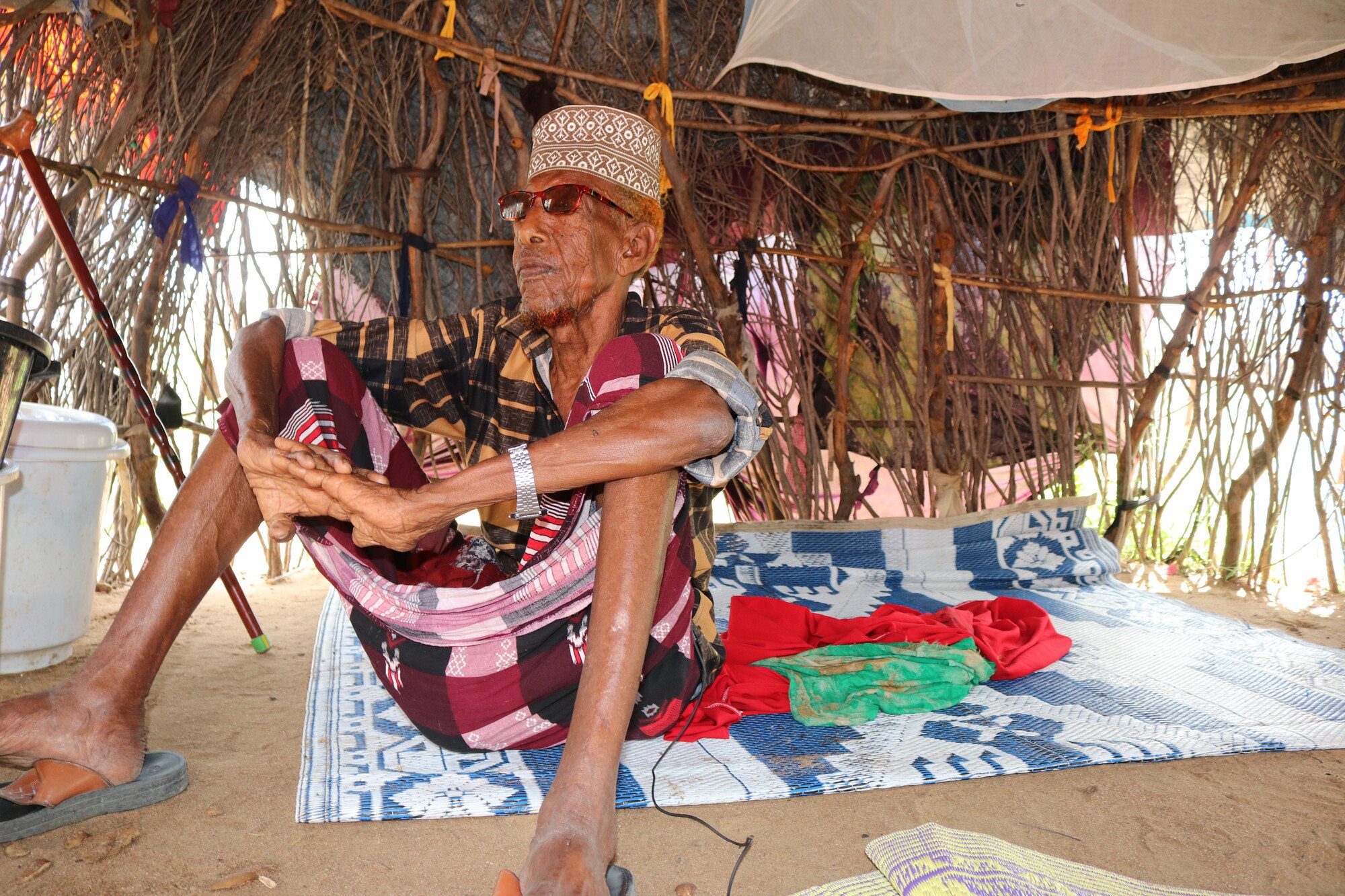A combination of factors is spreading suffering across the region. Oxfam is working with partners to alleviate hunger and push for solutions.
Countries in the Horn of Africa are enduring severe hunger, with near-famine conditions in some areas, due to conflict, climate-induced weather shocks (flooding in some countries, drought in others) and COVID-19.
Oxfam is working with local humanitarian groups in Ethiopia, South Sudan, and Somalia to deliver emergency assistance and address the underlying causes of hunger.
Ethiopia
Fighting between the Tigray People’s Liberation Front and the government began in Ethiopia’s northern Tigray region in late 2020. More than nine million people in Tigray and neighboring Amhara and Afar regions need humanitarian assistance.
One of them is Dagmawit (name changed for security reasons), a 35-year-old mother of three children who left her home in Amhara during fighting in September. ‘‘We fled from our town to save our lives and the lives of our children,” she says. “I don’t know if my husband escaped, which direction he may have gone, or where he is now. I followed other people who were fleeing the gun battle …. Thank God we arrived here safe.’’
She found temporary safety in a center for displaced people in Ednat, where Oxfam is working with the Organization for Rehabilitation and Development in Amhara (ORDA) to provide water and sanitation supplies, and cash to help displaced people purchase essentials in the local market.
Oxfam and ORDA’s joint response has reached more than 11,000 people with cash, water and safe sanitation, and hygiene kits. Together, we have constructed latrines, bathing facilities, and clean water distribution points. Oxfam is also working with organizations in the Tigray and Afar regions, providing water and sanitation, as well as cash, where possible. In the next year, Oxfam and partners plan to assist 750,000 people with emergency food packages, livelihoods assistance, clean water, sanitation, and hygiene kits.
More than half of the people affected by the fighting in northern Ethiopia are women, and 48 percent are children. To date, Oxfam has reached more than 149,000 people across the three regions affected by the conflict in northern Ethiopia.
Oxfam’s program in Ethiopia is also engaged in a long-term response to ongoing drought in the southern Somali region, where we are planning to help 180,000 people with clean water and sanitation and livelihood support for farmers and herders affected by conflict and drought.
South Sudan
South Sudan has experienced widespread seasonal flooding for five consecutive years. Since May 2021, an estimated 835,000 people have been affected by flooding along the White Nile, when early seasonal rain caused the rivers to flood areas across the north of the country. Entire communities have fled to higher ground, and about 366,000 people are currently displaced.
Nyakaal Kel Madoot, 56, says she and her nine children escaped the flood waters inundating their home in Ganyiel, and now says, “The biggest issue I am facing with my children is hunger.” She says the area in Lakes State where she has found higher ground with other displaced people lacks clean water and proper sanitation.
The recent flooding also hit areas recovering from conflict, and the threat of COVID-19 is particularly severe in areas where people are already malnourished.
Oxfam has been working in South Sudan for 30 years and is collaborating with local organizations to help 130,000 people with clean water, safe sanitation facilities, essential hygiene items, and hygiene education carried out by community members. Oxfam is helping to distribute seeds, tools, fishing equipment, and providing cash to 3,300 households to help them buy food and other essentials.
We are also helping to rebuild schools, provide alternative education to children displaced by conflict in South Sudan, and advocate for women and young people to be involved in peace talks and in setting the course for a peaceful South Sudan.
Somalia
Somalia is in the midst of a protracted period of drought, made worse in the last year by an upsurge in desert locusts that have eaten crops and pasture. Conflict and the pandemic have also contributed to a severe deterioration of living conditions. The UN and other humanitarian groups estimate 7.7 million people (roughly half of Somalia’s population) will need humanitarian assistance in 2022.
Lack of water and pasture are affecting the health of both people and livestock. “I had 128 cows before the drought,” says Hassan Sagar, 72, sitting in a makeshift shelter in an area hosting displaced people in Somalia’s southern Jubaland state. He fled his home village of Kaima, 30 kilometers (18 miles) away, in search of water and food along with other families that had lost all their livestock—which for many is their sole means of livelihood. “People here share the same predicament,” he says. “No one came here with even a single goat.”

Oxfam is working with the Wajir South Development Association (WASDA) in Jubaland to provide water and sanitation to help displaced people avoid water-borne diseases like cholera, as well as livelihood assistance and nutrition support. Our goal is to reach 10,000 people with WASDA in Jubaland and 183,000 people in total across Somalia. Oxfam’s plans include well drilling to provide clean water and helping 24,600 people by distributing cash. We also plan to provide seeds and tools and training for 1,000 farmers in small-scale greenhouse farming. We will also support livestock vaccination campaigns, and train local volunteers how to prevent gender-based violence.
